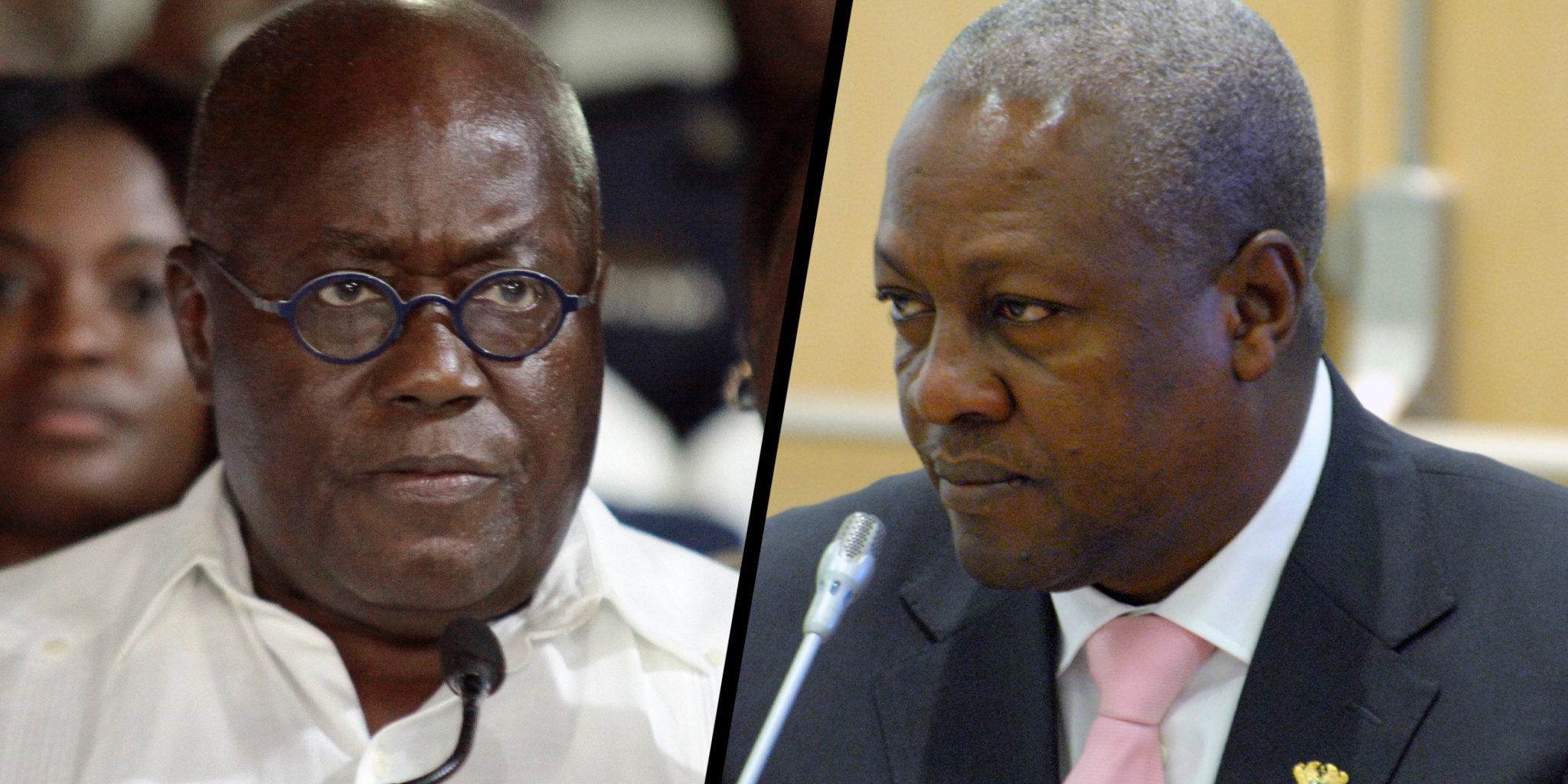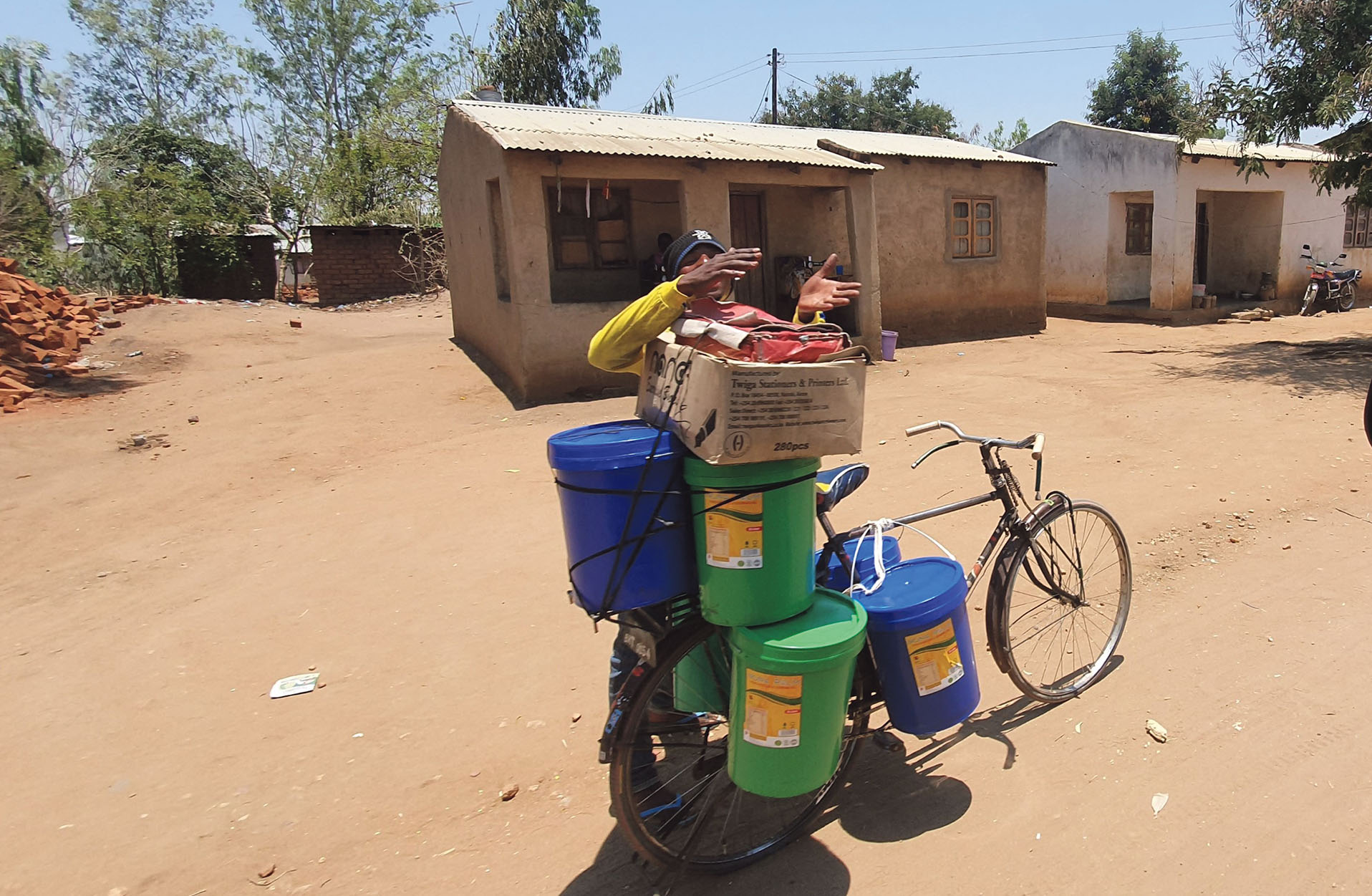News
Ghana's election: A play for change or continuity
On 7 December, Ghanaians go to the polls. On one side of the political spectrum is the call for continuity — four more years for incumbent president Nana Akufo-Addo — and on the other is a call for change, or more likely, back to the old, with former president John Mahama.

Ghana's election will be one of a dozen others on the continent in 2020. So far, the trend has been mixed with countries like Malawi demonstrating the power of independent and transparent institutions while others like Tanzania are doing a dangerous dance away from their commitment to democratic values. Ghana's elections need to be free, just and incorruptible, not merely to demonstrate its leadership on the African continent, but to uphold the hard-fought-for Fourth Republic, especially in light of the recent passing of its flawed giant, Flight Lieutenant Jerry John Rawlings.
Election season in Ghana is one that has always been met with colourful paraphernalia and catchy campaign slogans and songs. If there is one thing Ghanaians do not take for granted, it is their election jingles. But, winning an election takes much more than quips and gimmicks. It's the right identity, or tribal alignment, and the lambasting of opposition not based on real issues, but personal attacks and political vendettas that seemingly exist only in the public sphere.
For too long, this has been the norm. For many of Ghana's youth, the pattern of verbal attacks and feeble tribal alignments has for a number of reasons become an affront to exercising their political rights.
First, there appear to be only two options: the NPP and the NDC. For a generation all about efficiency and not wasting resources (read votes), it is challenging — almost imprudent — to consider other contenders. Since the inception of the Fourth Republic, the political space has been a solid duopoly, for lack of a better word.
Second, the opposition and the ruling parties appear to have nothing alike, but offer very little that is different. Opposition parties often rely on the seeming justice of running contrary to incumbents, whatever the situation may be. Their task appears to be to cause the downfall of the incumbent party as opposed to providing a more constructive alternative. National issues are reduced to political banter and political affiliation, shrouded in tribal identities.
The difficulty, though, is that at the end of the day, Ghanaians will vote. They must.
There is little incentive to change the way politics is organised. Perhaps Ghana, like most African countries, needs to consider debates where the most pressing social, economic and environmental issues are discussed at length. Even then, the shouting match the world was subjected to from US President Trump and now President-elect Biden offers no guarantee of success. But, perhaps it will be a start, and can hopefully show Ghanaians what their choices are made of and where they stand on issues that matter.
There are no silver bullet solutions, but certainly a number of right decisions.
For one, there is potential, through the financial sector, to create opportunities for growth and expansion. For the present government, if the private sector is the way, it needs to find ways to help it thrive.
“The major cause for reduced entrepreneurial activity is access to finance and cost of finance,” says one Ghanaian industry actor. “Bank rates are high and even much higher than what they advertise if you are a small or medium enterprise. By the time they add processing and everything else, on average you are looking at 32%. Who would want that?”
For a country with 80% of its enterprise base in SMMEs, the inaccessibility of finance curtails economic opportunity. To spur economic activity and boost confidence to invest in enterprise, the government and its parastatals must address the cost of funding by providing backing, leveraging agencies such as the National Board for Small Scale Industries, and reducing government borrowing to avoid crowding out private investment.
The Ghana many people envision — one where the private sector thrives and doesn't change every four years, where the public sector is efficient and effective, and one where institutions work — is not impossible to achieve.
It will require a political compact in which the narrow self-interest of the elite is subsumed by national concerns. Until our local leaders understand that the burden of development is on us — not donors, not the UN, and certainly not the AU — we will keep discussing the same issues. Political power needs to be used for purposes more constructive than extracting personal wealth. In a world where the paths of reform and recovery are well studied, we cannot be content with doing the same things over and over again and expecting different outcomes.
The concerns of Ghanaians are many and justified. With high levels of popular discontent over the lack of what seems to be other viable and able-to-compete choices, the slow pace of economic development, and the unending and scandalous reports of corruption, among others, there is much to be done. For citizens, the act of holding elections is on its own insufficient to sustain a democracy. They must demand more.
For starters, embracing issues — rather than identity-led political and economic choices — will go a long way. The usual sentimental identity — tribal and religious — arguments have not served the country well under either administration. Changing this system and culture demands leadership from private, public and civil society, taking a longer-term view and reorganising the way conversations around national development happen — for good and bad.

Success, as colourfully as it is often portrayed, requires an appreciation of the complex overlay of politics, economics, and business.
“'A better Ghana” — the trope that fills, and litters, the streets of the country every four years seems like a fantasy, given the reality of red tape, relatively expensive and unproductive labour, measly performance in its trade corridors, and a yo-yo reputation for financial management. And yet, it is achievable. A few good decisions by the central government, a change of tack in the economy to create more jobs and improve productivity, and Ghana could be on its way to a better path.
The concerns of Ghanaians are many and justified. With high levels of popular discontent over the lack of what seems to be other viable and able-to-compete choices, the slow pace of economic development, and the unending and scandalous reports of corruption, among others, there is much to be done. For citizens, the act of holding elections is on its own insufficient to sustain a democracy. They must demand more.
The onus, thus, of creating a more open political space is in the word itself —create. It must be created. There will be a need for citizens to step forward and take risks — personal and political — to break the impasse that has shaped what feels like political stagnation.
Similarly, until Ghana's citizens are able to put behind them the dated identity-based politics around which its democracy has been arranged, and embrace the promotion of clear ideas around national issues, its electoral democracy will hardly ever deliver.
Citizens have to win the vote between elections. A democracy without substance can only lead to failure and eventually disenchantment. That's not the future Ghanaians must aspire to, at least for the sake of its burgeoning youthful population.
“Show your working” is a dated term Ghanaian school-goers are familiar with and perhaps need to be reminded of as adults. After four years of each contender, Ghanaians have had front-row seats to each candidate's work. The question is, or should be, in a quest of a better Ghana, which one served Ghana best and which one does Ghana need at this juncture?
This was originally published on The Daily Maverick.


